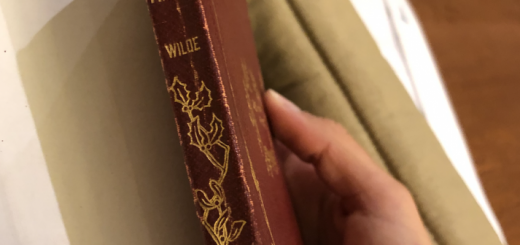I compared the original 1924 “Fräulein Else” text in German, published by P. Zsolnay, with the English translation that we read for class. “Fräulein Else” is a novella by the Austrian writer Arthur Schnitzler, and is unique for its first-person stream-of-consciousness narrative that follows the young adolescent Else as she navigates class expectations, sexuality, and familial duty. While Else is on vacation, her mother writes that she must ask Herr von Dorsday for money because her father is in trouble yet again. Dorsday then requests to see Else naked, in exchange for sending her father the money. Else grapples with this dilemma, wrestling with anger towards her family for putting her in this situation, recognition of her own sexual identity, and contempt for upper-class society because she has no other way to make money. In the end, Else’s shocking decision to expose her naked body to everyone in the music room (as a way to fulfill Dorsday’s request) is an outright act of rebellion against social norms in the bourgeoisie. But leading up to this decision, Else’s thoughts and observations have long been rebelling against the pretentiousness and performance of the upper class, which is especially evident in subtleties of language.
The opening dialogue between Else, Paul, and Cissy about tennis has an added dimension in German with the usage of formal you “Sie” versus the informal you “du”. Paul and Else, presumably because they are cousins, refer to each other using “du” and “dir”, while both of them use “Sie” and “Ihr” when talking to Cissy (and likewise, Cissy addresses both of them formally). The effect here is twofold. One, it becomes just a little easier to follow who is talking to who, because this pattern of formality is consistent. Two, the distinction adds to the themes of hierarchy, etiquette, and performance. Throughout the story, the tension between Else and Cissy is evident, but only because we read Else’s thoughts – out loud, they are always masked behind respectfully worded dialogue and formal “Sie”s. In this way, we can also interpret the usage of “Sie” as a symbol of distance, in contrast to the intimacy of “du” that Else and Paul have. This adds context to the revelation that Else has at the end (after she has fainted but can still hear others talking): “‘Du?’ She [Cissy] calls him [Paul] ‘Du’! I’ve caught you! She calls him ‘Du’!” (101), and why this confirms Cissy and Paul’s affair – in public, Cissy always refers to Paul as “Sie”.
During that same opening dialogue, a subtlety that is completely omitted from the English version is when Cissy says “There are two whole hours before dinner”, she literally says the English word “Dinner” within a sentence of German. A few pages later, Else internally comments on this, asking “Warum sagt Cissy ‘Dinner’? Dumme Affektation.” (Why does Cissy say “Dinner”? Dumb affectation/facade/pretentiousness.) She doesn’t linger on this, but then pages later after she has read her mother’s telegram, she makes the observation that “In an hour it’ll be time for dinner. I can’t bear Cissy” (25). This jump from dinner to Cissy seems to make no sense in English, but in German she thinks “In einer Stunde ist das Diner, das ‘Dinner’” before she remarks about Cissy, because she is reminded of Cissy’s pretentious word choice. Once again, there is the surface-level effect where Else’s train of thought makes a little more sense, but also the theme of performance within the nobility is emphasized. Throwing around these multilingual phrases (the English word for Dinner, and also the various “Adieu’s” and other French words) is merely a way to show off one’s upper-class education, and Else sees right through it.
While that “Dinner” motif is lost in English, I noticed that the English translation actually added some French words that the original German text did not have. For example, after Herr von Dorsday makes his request to see Else naked, explains why she should sympathize with him, and gives her the generous choice between his hotel room or the meadow, he bids her farewell with “Au revoir then, Else” (51). In fact, the original German text only said “Also auf wiedersehen, Else” (which is regular German for “Goodbye”)! This adds back some of that multilingual pretentiousness, and makes Dorsday seem more artificial – just like Cissy.
Even these subtle differences between the English and the German have changed my understanding, as it becomes more obvious to me how Else scorns the rules and the performance of the upper class. The contrast between her unfiltered thoughts and her carefully crafted dialogue are more pronounced because she never fails to use “Sie” when appropriate. Her dislike for Cissy is explained not only because of her relationship with Paul, but because she symbolizes fake intelligence and class – just by using an English word.












Recent Comments